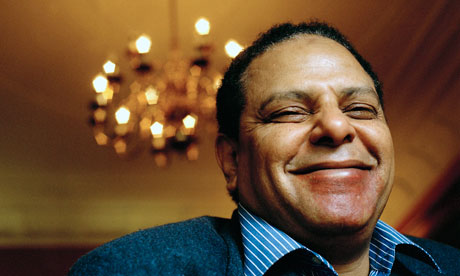
Worried about the future role of the book? Consider this tale of two novels. In France, disaffected voters have been defiantly reading La Princesse de Clèves, a tale of thwarted love by Madame de Lafayette first published in 1678. The book is taught in most French classrooms and is generally conceded to be a tough read.
But badges inscribed with "I am reading La Princesse de Clèves" were one of the most popular items at the recent Paris book fair, with public readings of the novel in theatres and universities. The explanation? La Princess de Clèves has become the focus of opposition to an unpopular president for one simple reason: Sarkozy hates it, and has often expressed his dislike of the book.
A world away, in Egypt, another novel, The Yacoubian Building, has been attracting almost as much attention as its author, Alaa al-Aswany, one of the key players in Egypt's pro-democracy movement. His novel, an allegory of Mubarak's regime, privately published in 2002 in defiance of state censorship, became an instant bestseller across the Arab world, a lightning rod for protest against a corrupt and dictatorial regime.
As much as Václav Havel in Czechoslovakia, or Aleksandr Solzhenitsyn in the USSR, Aswany has been hailed by some commentators as "the voice of Egyptian revolution". We'll see. My guess is that this very private man, by profession a dentist whose first office was in Cairo's Yacoubian Building, will return to his surgery and his writing desk. His books will be published more freely, but he will not become a spokesperson for the Nile revolution.
Literature and protest is a romantic theme, but surprisingly rare. In Britain, once the battle for the vernacular Bible had been fought and won, very few writers ended on the scaffold. Raleigh was executed for plotting against James I, Bunyan imprisoned and Defoe pilloried, but the biggest threat to most writers was the violence of literary rivals. Later, in parliamentary politics, only two prime ministers, Disraeli and Churchill, can be said to have made a career out of authorship.
Anthony Trollope stood for parliament in 1868 as a Liberal and described the experience as "the most wretched fortnight of my manhood". He came bottom of the poll. Graham Greene never ran for office, but loved to flirt with danger, in Vietnam, Nice, Central America and Haiti. When President "Papa Doc" Duvalier denounced The Comedians, Greene boasted that "a writer is not so powerless as he usually feels, and a pen, as well as a silver bullet, can draw blood".
In France, Victor Hugo stood for president in 1848, and Emile Zola's "J'Accuse" sent shockwaves through the Third Republic during the Dreyfus affair, but mainly served to sell newspapers. Whatever the French like to believe to the contrary, Madame de Lafayette is the exception that proves the rule.
Crossing the Atlantic, it was Abraham Lincoln who signalled the importance of Uncle Tom's Cabin when he met Harriet Beecher Stowe. He is reported to have said: "So you're the little woman who wrote the book that made this great war." Subsequently in the US there has been a lively, almost frivolous, tradition of literature and politics.
Gore Vidal ran for Congress in 1960 and lost. His rival, Norman Mailer, stood for mayor of New York City in 1969 with the slogan "No more bullshit" and came fourth. My personal favourite, the singer-crime writer Kinky Friedman, attempted to become Texas governor on the slogan: "Why the hell not?". He lost.
Even in Russia, the relationship between writers and revolution has its absurd as well as its heroic side. Solzhenitsyn fought against the Nazis in 1944 and became disillusioned with Stalin. Writing home, he made a joke about the leader's moustache and, when the letter was intercepted by the NKVD, was arrested and sentenced to eight years' hard labour for "disseminating anti-Soviet propaganda".
There was no trial, and he spent the next several years as a prisoner. This was the inspiration for The Gulag Archipelago. When the Soviet Union collapsed in 1991, he was living in exile in Vermont. Great novelists tend to avoid the barricades, whatever our fantasies of dissent.
Borrowers can't get enough of the Gruffalo
I was pleased to see, from the Public Lending Right's latest figures, that The Gruffalo remains the most borrowed children's title in the UK. Its author, Julia Donaldson, took the opportunity to sound the alarm for the defence of libraries, which, she said, are how kids "find out which books they like best and develop a love of reading". The other message for hard times from the PLR data is that writing books for children might be one way to make money. Of the five authors who clocked up more than a million loans in 2009-2010, three (Daisy Meadows, Jacqueline Wilson and Francesca Simon) write for a juvenile audience. The most borrowed author in the UK turns out to be thriller writer James Patterson. JK Rowling, who hardly needs the money, is now just number 87 in the UK charts.
A wild idea that wasn't just a flight of fancy
Vladimir Nabokov, the author of Pnin, Pale Fire and Lolita, was also a keen amateur lepidopterist, with heterodox ideas about the evolution of the species. In butterfly circles, his belief in the transmigration of the Polyommatus icarus (common blue) was treated as the whimsical speculations of a great fabulist. Happily, Nabokov has finally triumphed. An expert team of Harvard lepidopterists has now confirmed his theories in a paper just published by the Royal Society. Nabokov's blues did migrate to the New World from Asia, after all.

